- Universities
- Colleges
- Polytechnic
- Technical/Vocational
Saskatchewan Indian Institute of Technologies
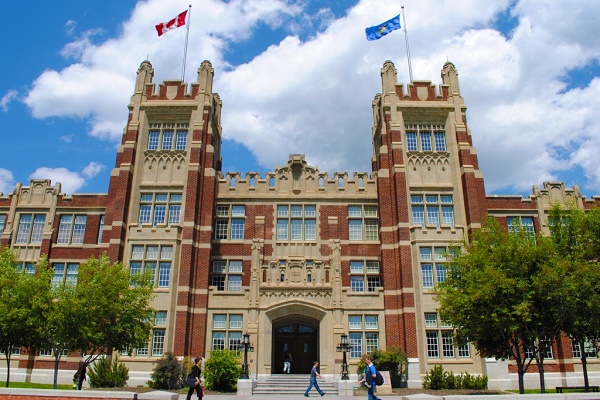
![]() Regina, Saskatchewan
Regina, Saskatchewan
Established in 1976, the Saskatchewan Indian Institute of Technologies (SIIT) is one of the four Saskatchewan educational institutions with credit granting authority.
SIIT offers certificate and diploma programs in the trades and industrial areas, business, information technology, health and community studies, and adult basic education to more than 2,400 students annually. Programming is delivered through three principal campuses in Regina, Saskatoon and Prince Albert, plus eight Career Centres and a number of learning centres located throughout the province. SIIT also operates the Saskatchewan Aviation Learning Centre at the Saskatoon airport.
Governed by First Nations leaders and representatives from across the province, SIIT strives to be the institute of choice for Aboriginal individuals. SIIT is building strong relationships and partnerships with a growing range of industry leaders, professional associations, and academic institutions.
Learn more about SAIT programs for international students at: www.sait.ca/international-students
Northern Lakes College

![]() Slave Lake, Alberta
Slave Lake, Alberta
The service region for Northern Lakes College covers an area in excess of 163,000 square kilometers in north central Alberta, with more than 25 campuses. The institution serves a total of 37 communities. The challenge of providing access to learners in these communities has resulted in a rather unique program delivery model. Distance learning technology remains a key delivery tool, helping the College to reach the students throughout the region and beyond. Northern Lakes College offers certificates, diplomas, pre-employment programs, university transfers and apprenticeship training. The College is a member of Campus Alberta and continues to support its goal to provide accessible, transferable and collaborative programming that encourages innovation, entrepreneurship, and system collaboration. The institution has a few unique settings, including the Marten Lakes Wilderness Campus. This remote wilderness camp offers a rustic outdoor experience. Northern Lakes College is proud to welcome many mature learners who need significant educational upgrading before entering post-secondary programs. Learners are appreciative of the local opportunities and they value education. Local education, in turn, often contributes to skilled workers remaining in the communities.
Learn more about Northern Lakes College at: www.northernlakescollege.ca
University of the Fraser Valley
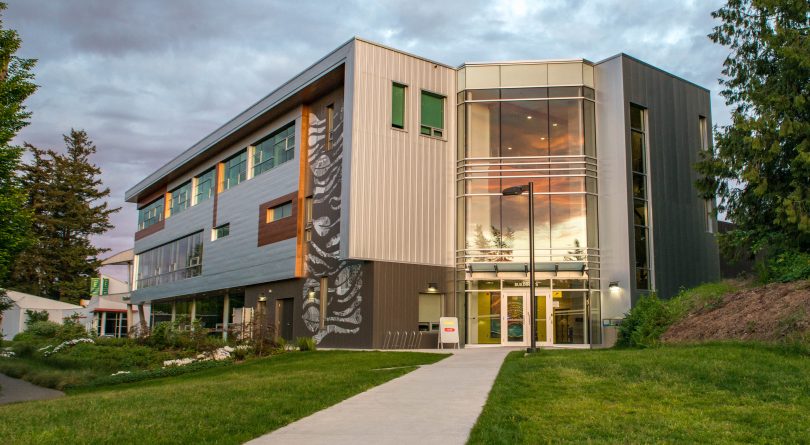
![]() Abbotsford, British Columbia
Abbotsford, British Columbia
Located in the beautiful Fraser Valley just east of Vancouver, British Columbia, Canada, the University of the Fraser Valley (UFV) is a fully accredited, public university that enrolls approximately 14,500 students per year. UFV has campuses and locations in Abbotsford, Chilliwack, Mission, Hope and Agassiz, and a growing presence in Chandigarh, India.
UFV strives to be a place of learning that recognizes, respects and includes indigenous ways of knowing. Our Fraser Valley locations are in the traditional territory of the Stó:lō peoples. UFV is recognized nationally for student success, an excellent learning environment, creative integration of programming, and our work with local communities. UFV is large enough to offer variety, and yet our small class sizes allow students to get to know their instructors and learn in a hands-on environment. We offer more than 100 programs, including master’s and bachelor’s degrees, majors, minors, and extended minors in more than 30 subject areas, and more than a dozen trades and technology programs. Our admission policies are flexible, and students can learn in a variety of ways: full-time, part-time, in-class, online, as part of a structured program or one tailored completely to their interests.
Our thriving international programming makes for a culturally diverse student community and great opportunities to study abroad. Our continuing studies and academic upgrading offerings make learning a lifelong experience. Many clubs, events, and activities enhance student life on campus and our award-winning Cascades athletics teams are highly competitive.
Learn more about University of the Fraser Valley at: www.ufv.ca
Canadian College of Performing Arts

![]() Oak Bay, British Columbia
Oak Bay, British Columbia
The Canadian College of Performing Arts is built on education, artistic excellence and community. Our three unique conservatory style post-secondary training programs offer emerging artists intensified skill-based alternatives to academically oriented university programs. Classes are rigorous and offered to the highest professional standards by elite faculty and guest artists, to produce well-rounded performing artists of exceptional caliber with a strong work ethic and business acumen.
Learn more about Canadian College of Performing Arts at: www.ccpacanada.com
The Southern Alberta Institute of Technology

![]() Calgary, Alberta
Calgary, Alberta
When it comes time to apply theory in a hands-on environment, SAIT has found ways to make in-person learning possible. Small cohorts, physical distancing and enhanced sanitization measures make it possible for students to learn and practice hands-on skills in our state-of-the-art labs and classrooms. This blended delivery of virtual and in-person training will allow our students to develop the skills they need to succeed in their future careers in business, construction, energy and environment, hospitality and tourism, health, information and communications technologies, manufacturing, and transportation.
Learn more about SAIT programs for international students at: www.sait.ca/international-students
Centennial College
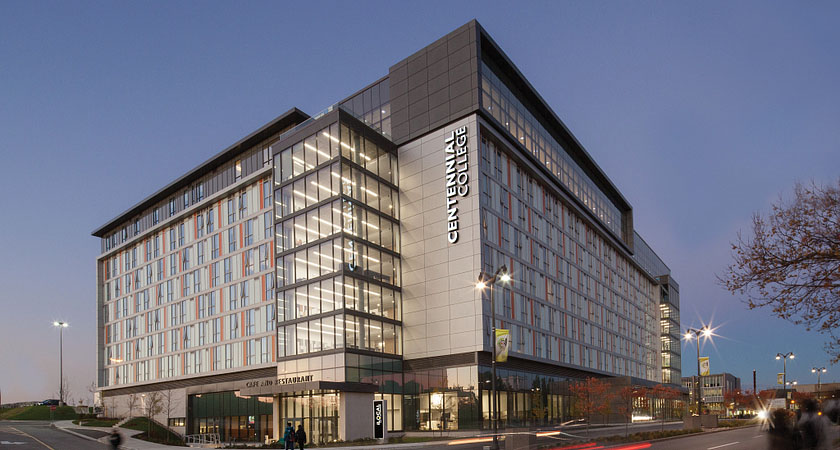
![]() Toronto, Ontario
Toronto, Ontario
Centennial College of Applied Arts and Technology is a diploma- and degree-granting college located in Toronto, Ontario, Canada. It is the oldest publicly funded college in Ontario.
Over the past 50 years, Centennial College has transformed itself from a local community college to a worldly institution, with a presence in countries like China, India, South Korea and Brazil.
Our focus has always been on preparing graduates to enter the work force, while teaching our students to be leaders. We’ve worked to build lasting partnerships with local communities, while preparing our graduates to succeed globally.
We believe a Centennial education is an education without borders, because the world has changed, and so have we. We’ve re-created our College, giving ourselves a unique position in the marketplace and the world. We are now prepared for the next set of challenges: To be more innovative and entrepreneurial, to further exploit the benefits of technology, to creatively engage our employees, to build more bridges with communities and employers and to see our graduates do meaningful work and have meaningful lives.
Learn more about Centennial College at: www.centennialcollege.ca
Lethbridge College
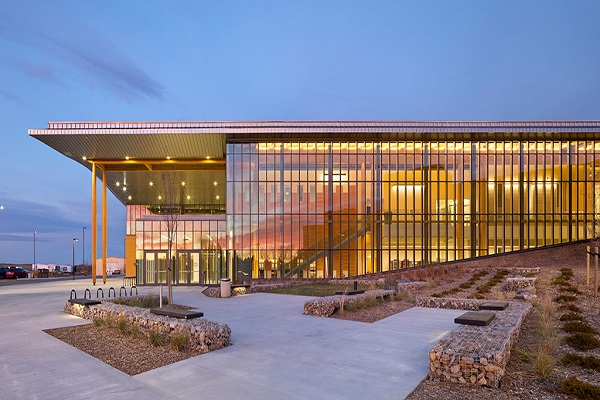
![]() Lethbridge, Alberta
Lethbridge, Alberta
Lethbridge College opened in 1957 and is Canada’s first publicly-funded college. More than 4,000 students are enrolled in over 50 career-training programs, applied degree programs and apprenticeships, ranging from environmental science to justice studies to agriculture, business, engineering and more. The college offers nationally-recognized and nationally-accredited programs taught by instructors with proven careers in the fields they teach. Whether students’ goals are to gain instant employability upon graduation or to transfer credentials to a degree-granting institution, we provide them with a vibrant, high-tech place to get started. Well-established trades training and apprenticeship courses (9 apprenticeship and 4 pre-employment programs) are turning out tradespeople such as automotive systems specialists, electricians, welders, carpenters, heavy-duty mechanics and chefs. The college offers hands-on training, flexible learning possibilities and applied research opportunities. Students can choose from the familiar classroom-based courses, opt for online courses, or decide on a mix of classroom and online learning. The institution is also focused on creating an inclusive environment for First Nations, Métis, Inuit and international students. Welcome to your future at Lethbridge College.
Learn more about Lethbridge College at: lethbridgecollege.ca
British Columbia Institute of Technology
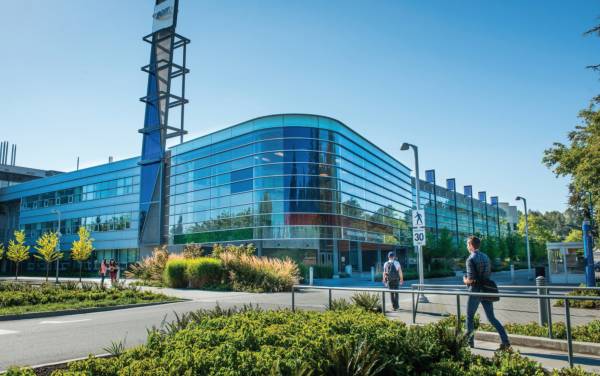
![]() Burnaby, British Columbia
Burnaby, British Columbia
For over 50 years, the British Columbia Institute of Technology (BCIT) has been a leader among Canadian post-secondary institutions. Offering an applied, hands-on education that models the evolving work environment, BCIT is one of British Columbia’s largest post-secondary institutes. BCIT educates more than 47,000 full-time and part-time students in over 300 programs each year across five campuses and 10 satellite locations.
BCIT’s credentials range from certificates and diplomas to bachelor’s and master’s degrees in areas such as applied and natural sciences, business and media, computing and IT, engineering, health sciences, and trades and apprenticeships. The Institute’s programs are developed in consultation with leading employers and industry associations, ensuring its graduates are more than ready to succeed in their careers and contribute to a productive economy from day one.
BCIT was the first institution in BC to offer advanced technical education in areas such as engineering, business, and health, and is the largest and longest-serving provider of trades training and apprenticeship programs in Western Canada.
Learn more about BCIT at: www.bcit.ca
Kwantlen Polytechnic University
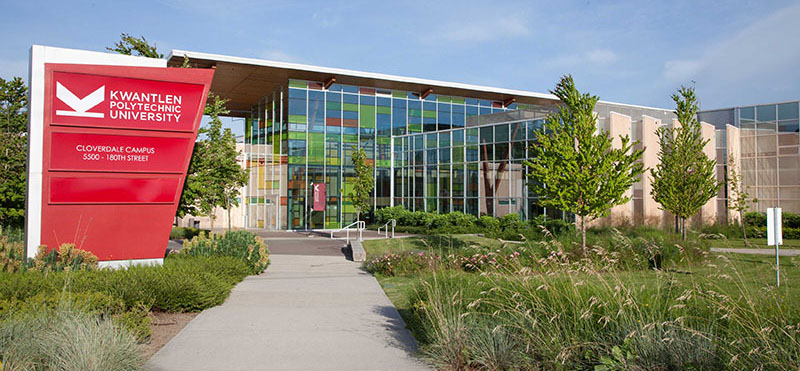
![]() Surrey, British Columbia
Surrey, British Columbia
Established by the government of British Columbia in 1981, Kwantlen, now Kwantlen Polytechnic University, has four campuses located in the Metro Vancouver region of British Columbia. More than 19,000 students attend Kwantlen campuses annually in Surrey, Richmond, Langley and Cloverdale. All campuses are accessible to those with mobility and visual impairments. Kwantlen offers bachelor’s degrees, associate degrees, diplomas, certificates, citations and apprenticeships in more than 150 programs. Kwantlen students have a unique opportunity to bridge certificate and diploma credentials into bachelor’s degrees, creating the option of academic and professional enhancement of applied and technical programs. Kwantlen Polytechnic University develops degree programs and other applied credentials to successfully meet the evolving needs of regional and global employment markets.
Learn more about Kwantlen Polytechnic University at: www.kpu.ca
Keyano College
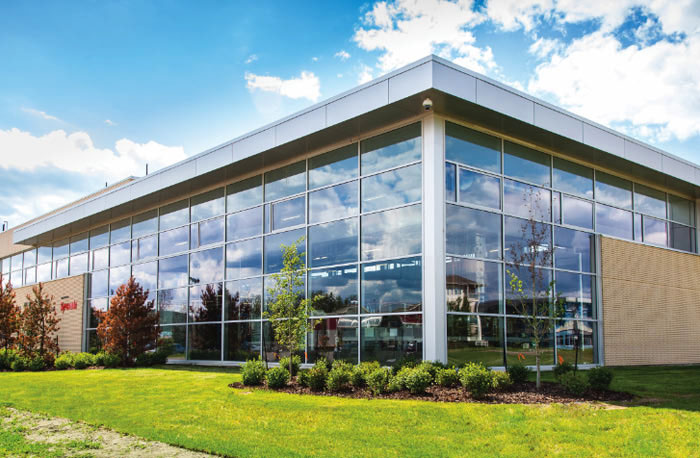
![]() Anzac, Alberta
Anzac, Alberta
Keyano College is a comprehensive community institution in the Regional Municipality of Wood Buffalo. Stretching from north-central Alberta to the borders of Saskatchewan and the Northwest Territories, Wood Buffalo is one of the largest municipalities in Canada. Established as the Alberta Vocational Centre in 1965, the institution changed its name to Keyano (a Cree word for “sharing”) College 10 years later. Over the years, Keyano’s programs and services have grown with the community, reflecting the changing demands and interests of the region, its broadening multicultural orientation, and constantly changing technologies. Throughout this time, Keyano has proactively positioned itself as a community builder meeting both the training and skills acquisition needs of industry, and the personal enrichment and cultural needs of the Wood Buffalo community.
Keyano served nearly 3,100 distinct credit students in 2014/15 through campuses in Fort McMurray, and Fort Chipewyan and through our Learning Centres in Fort McKay, Gregoire Lake, Conklin and Janvier. The College offers programs that lead to certificates, diplomas, certificates of qualification (trades), and baccalaureate degrees. The College also supports the development of professional knowledge and skills in several sectors, including energy, construction, business, health and safety, arts, sciences, education, human services, and transportation. A wide range of corporate training options are available to client companies.
Learn more about Keyano College at: www.keyano.ca
Northern College
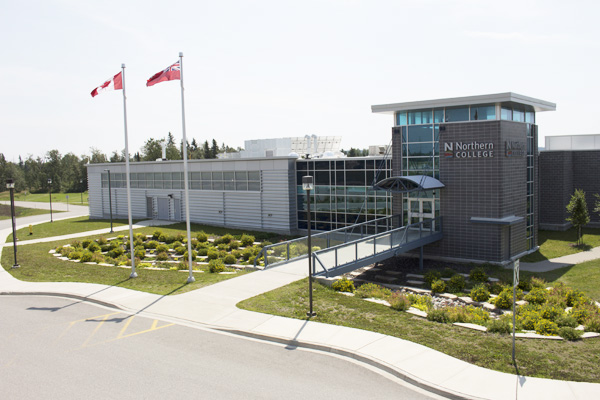
![]() Timmins, Ontario
Timmins, Ontario
Northern College is a college of applied arts and technology located in Timmins, Ontario. The college serves over 65 communities in Northern Ontario with campuses in Haileybury, Kirkland Lake, Moosonee, and Timmins.
Northern is also home to the world-renowned Haileybury School of Mines. The institution has partnerships with 19 universities and 10 colleges, giving students access to 50 specialized programs throughout Canada and abroad.
The College receives more than 2,000 full-time students a year, and more than 6,000 part-time and continuing education students. Each Northern College campus features specialized programs and facilities to support students. As an example students from across Ontario attend the Haileybury campus to study Veterinary Sciences. Our Haileybury campus is also home to the Wildlife Rehabilitation, and Companion Animal Physical Rehabilitation programs, the only programs of this kind in Ontario.
Learn more about Northern College at: www.northernc.on.ca
Portage College, Lac La Biche Campus
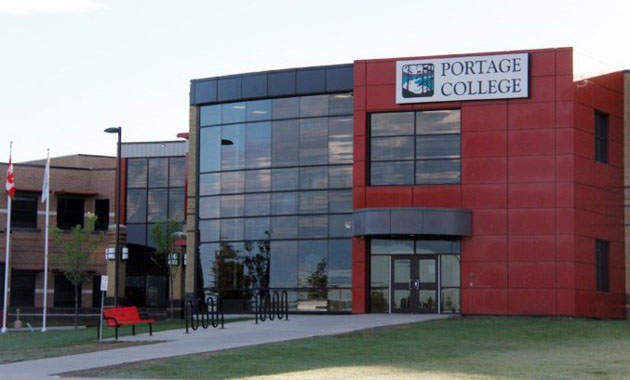
![]() Lac la Biche, Alberta
Lac la Biche, Alberta
Portage College is an innovative community college operating under the Alberta Post-secondary Learning Act. The College has been serving northern Alberta for 48 years and has seven campus locations strategically located throughout the northern region. Portage is the home for experiential learning, combining hands-on training with state-of-the-art labs and classrooms. Portage College provides over 30 certificate and diploma programs as well as a wide selection of Continuing Education training to more than 4,100 students annually. Portage students continue to achieve new milestones, these include: over 90% of Portage College graduates working in training-related jobs six months after graduation, also for the third year running, 100% of Practical Nurse graduates passed the national LPN exam.
Learn more about Portage College at: www.portagecollege.ca
Seneca College
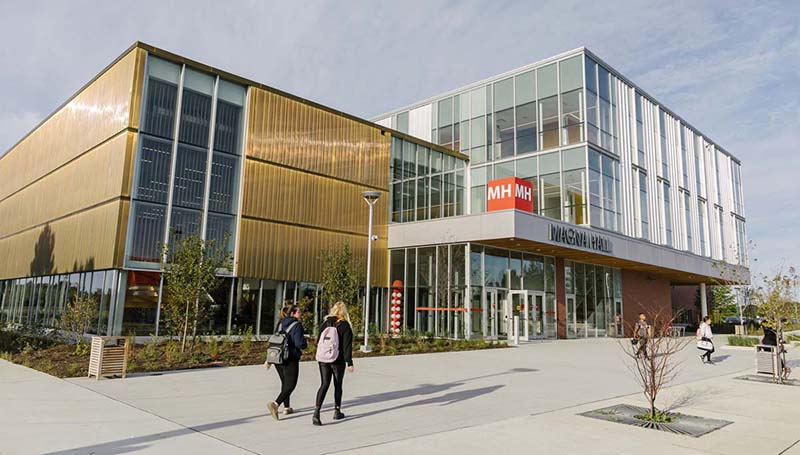
![]() Toronto, Ontario
Toronto, Ontario
Toronto’s Seneca College is a public college with campuses throughout the Greater Toronto Area. The institution prides itself on offering more than an education for its students, as it offers partnerships industry leaders, the latest computer technology, a variety of class sizes, and flexible education options. Seneca offers career-focused programs in many high demand professions related to applied arts, business, financial services, and technology.
Since its inception in 1967, Seneca has grown to serve 17,000 full-time students and close to 90,000 part-time and continuing education students. It also offers 145 full-time programs and 135 part-time programs, including 14 Bachelor’s degrees. Seneca is a leader in international opportunities; with 70 transfer agreements with both local and international post-secondary institutions. It has partnerships with schools in Australia, England, South Africa and the US.
Learn more about Seneca College at: www.senecacollege.ca
Yukon University
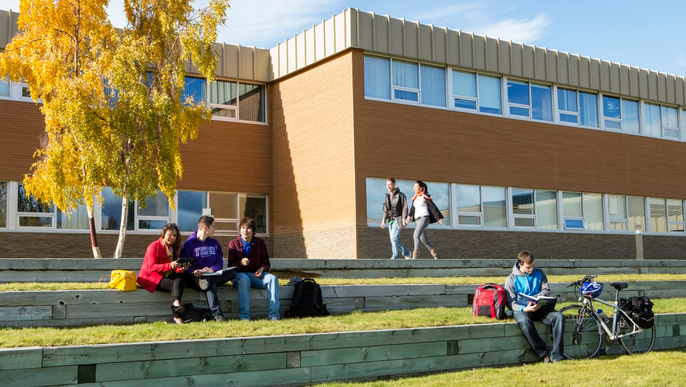
![]() Whitehorse, Yukon
Whitehorse, Yukon
Yukon University is the only publicly funded post-secondary education institution in Yukon, a territory of 36,000 inhabitants spread out over 482,000 square kilometers. The University has 11 community campuses – one in almost every town/village within the territory, with the main campus located in Whitehorse and one at the correctional centre. One quarter of the Yukon University student body takes courses at one of the community campuses. At the main campus – Ayamdigut – there are approximately 1,200 students registered in credit programming, half of which are part time. In Continuing Education there can be up to 5,000 students registered each year in short courses.
At Yukon University, the instructors teach with a northern perspective, offering over 50 programs, ranging from degrees to certificates to apprenticeships. Yukon University works closely with business and industry, developing programs designed to address labour force needs. The institution is a leader in education, rooted in its diverse cultures and northern environment where everyone is inspired to dream, learn and achieve.
Learn more about Yukon University at: www.yukonu.ca
Grande Prairie Regional College
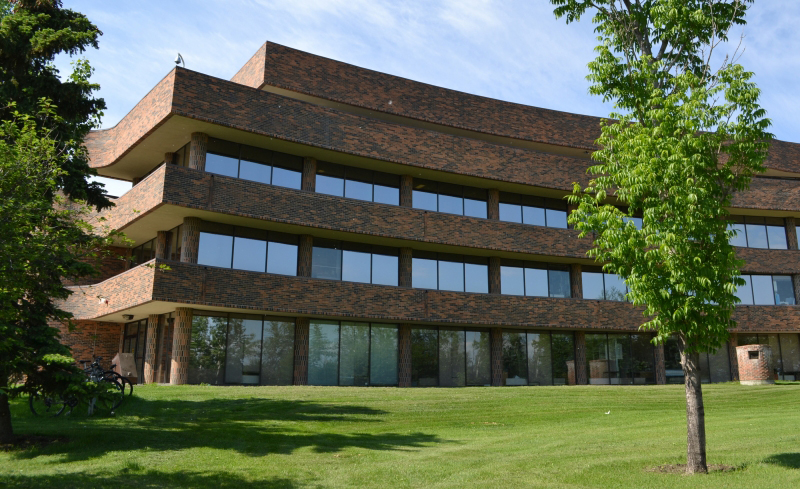
![]() Grande Prairie, Alberta
Grande Prairie, Alberta
Grande Prairie Regional College, known as GPRC, is a comprehensive community institution, publicly supported to provide opportunities in post-secondary education in northwestern Alberta. The College operates under the Post-Secondary Learning Act and the Ministry of Enterprise and Advanced Education, Province of Alberta.
The College was established in 1966 in Grande Prairie, and our stewardship region now includes campuses in Fairview and Grande Prairie, and learning centres in Edson, Grande Cache, Hinton and Jasper. GPRC offers a wide variety of career certificates and diplomas, pre-employment and apprenticeship trades, university transfer studies, and several opportunities for on-campus degree completion at baccalaureate and master levels through collaborations with four-year universities.
The highly-qualified faculty, affordable tuition, small classes, personal contact and extensive scholarship and awards program offered by GPRC attract students from a wide area. Classroom-based instruction in Grande Prairie, Fairview, Hinton, Edson and Jasper is extended to several other communities in our region and beyond through various distance delivery methods. The College is an eCampusAlberta partner facilitating increased access to online learning opportunities for students.
Learn more about Grande Prairie Regional College at: www.gprc.ab.ca
Maritime College Of Forest Technology

![]() Fredericton, New Brunswick
Fredericton, New Brunswick
The Maritime Forest Ranger School (MFRS), known today as the Maritime College of Forest Technology (MCFT), was established in Fredericton, NB in April 1946 as a cooperative effort by the wood-using industries and governments of Nova Scotia and New Brunswick to re-train and integrate returning WWII veterans. For 57 years the MFRS graduated skilled, knowledgeable, and capable forest technologists for work in the Maritimes and across Canada. In 2003, MFRS was re-branded MCFT, and with the change in name came a revitalization of the College’s courses and curriculum. Today, the Maritime College of Forest Technology (MCFT) continues to be one of Canada’s premier post-secondary institutions that specialize in natural resource education. We devote 100% of our time to learning and working with students and faculty who are passionate about the outdoors and who want to make a difference in the natural resource sector. We instil within our graduates a land ethic that will guide them in their interactions with clients, employers, colleagues, and the environment in which they work.
Learn more about Maritime College Of Forest Technology at: www.mcft.ca
Medicine Hat College
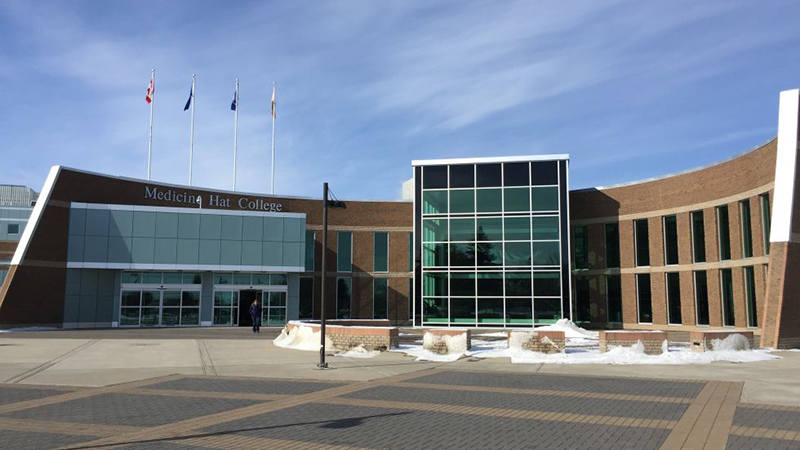
![]() Medicine Hat, Alberta
Medicine Hat, Alberta
Medicine Hat College is a public, board governed, comprehensive community college serving a large region of southeastern Alberta and southwestern Saskatchewan. Open since 1965, the college is a 45-hectare modern, progressive institution of learning. MHC serves over 8,000 learners each year. More than half of the students are from the Medicine Hat region. The institution emphasizes small classes, high-quality instruction, and excellent student support.
Medicine Hat College is a learner-centered institution serving a diverse range of students in the major areas of study including: liberal arts, business/commerce, health and human services, physical education, visual and performing arts, science, apprenticeship trades, academic upgrading, and general education programs.
The college focuses on four primary types of programming: Undergraduate degrees and university transfer programs, certificate, diploma, and applied degree programs, college and university entrance programming, and pre-employment and apprenticeship trades programming.
Learn more about Medicine Hat College at: www.mhc.ab.ca
Dumont Technical Institute
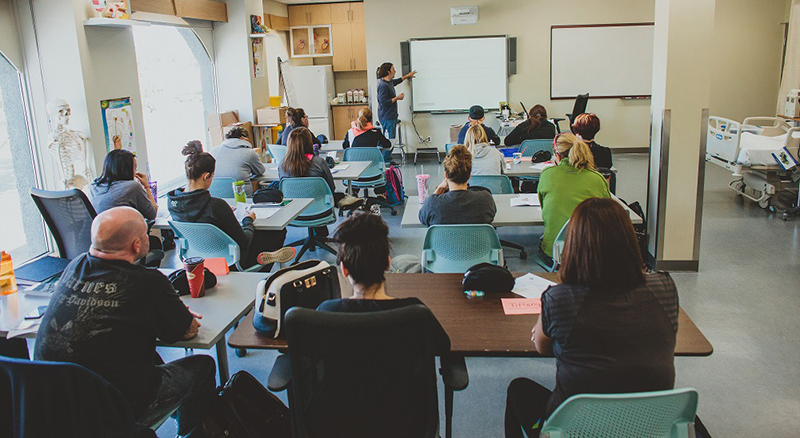
![]() Regina, Saskatchewan
Regina, Saskatchewan
Dumont Technical Institute (DTI) is a unique institution which was established in 1991. As a world class Aboriginal post secondary institution, DTI serves the educational and skills training needs of the province’s Métis through the provision of community-based adult upgrading and skills training programs. It is the upgrading and skills training arm of Gabriel Dumont Institute (GDI), and GDI’s largest component. DTI strives to provide quality educational opportunities for Métis people in Saskatchewan and ensure our programs meet the needs of our learners and the labour market.
Learn more about Dumont Technical Institute at: gdins.org
Algonquin College, International Education Center
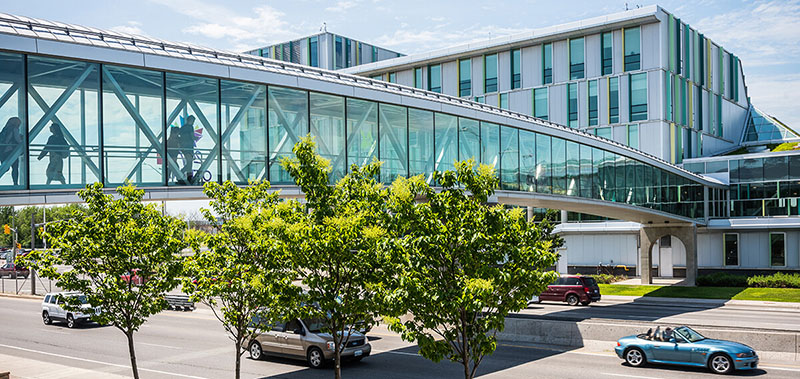
![]() Ottawa, Ontario
Ottawa, Ontario
The mission of Algonquin College of Applied Arts and Technology is to transform hopes and dreams into lifelong success. The College does this by offering hands-on, digitally connected, experiential learning in more than 300 programs. These programs range from everything from health, business, media and design, trades and technology to heritage trades, public safety, community studies, hospitality and tourism, outdoor adventure, and more. Algonquin College is the largest polytechnic in eastern Ontario, with campuses in Ottawa, Pembroke, and Perth.
Learn more about Algonquin College at: www.algonquincollege.com/international
Bow Valley College
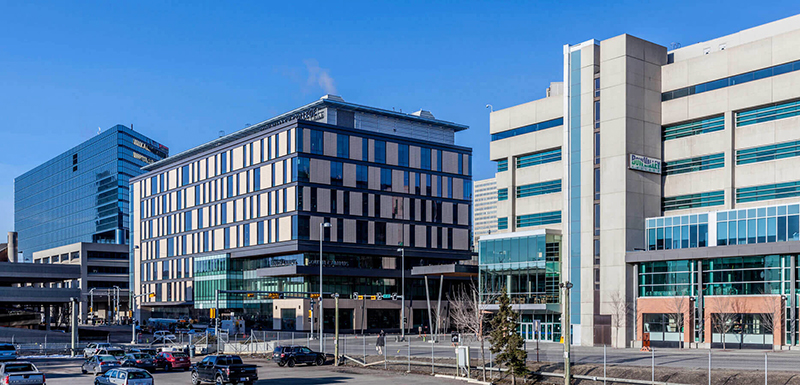
![]() Calgary, Alberta
Calgary, Alberta
As Alberta’s largest community college and a proud partner in Campus Alberta, Bow Valley College serves 15,000 learners each year in Calgary and throughout southern Alberta. We offer year-round career certificate and diploma programs, as well as High School Upgrading and English Language Learning. We also offer a range of career services, and specialized services to support newcomers to Canada with securing viable careers and professional accreditation. Bow Valley College delivers programs and skills that make you think in new and creative ways, removing barriers to fulfilling and lasting employment. In fact, 93 per cent of our graduates find jobs in their chosen career within six months of graduation. Fast, focused, and flexible – that’s the reality of a Bow Valley College education.
Learn more about Bow Valley College at: bowvalleycollege.ca
Camosun College, Interurban Campus
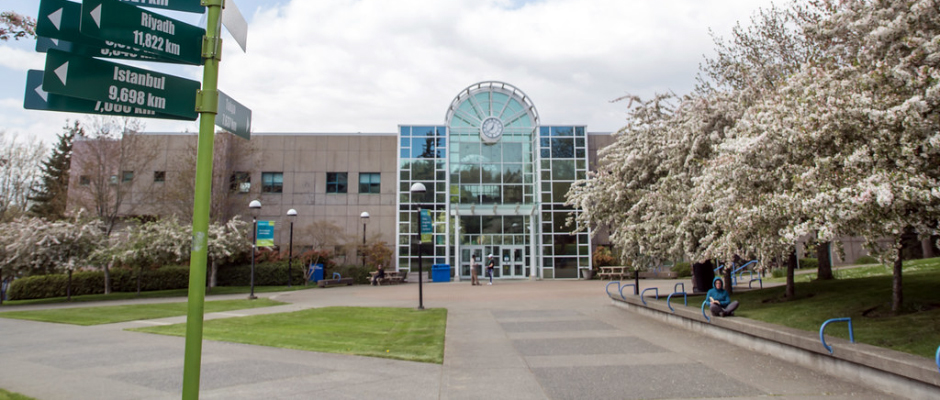
![]() Victoria, British Columbia
Victoria, British Columbia
Camosun College is located in beautiful Victoria, British Columbia. Our two campuses serve approximately 18,000 learners a year in certificate, diploma, bachelor’s degree and continuing education programs. Each year Camosun welcomes over 1,100 Indigenous students from First Nations, Métis, and Inuit groups, and over 1,500 international students from more than 70 countries. The college welcomed its first students in 1971 and adopted the name “Camosun,” a local Lkwungen (Songhees) First Nation name meaning “where different waters meet and are transformed.” Today, Camosun College offers 160 programs to help meet the needs of students and communities in Victoria and beyond. Our education offerings include university transfer and applied degree programs; career and trades training; upgrading and preparatory programs; and continuing education. Camosun College has earned an outstanding reputation for teaching excellence. And, our impact as a college extends well beyond our highly skilled, job-ready graduates. We provide contract training opportunities for local business; research, innovation and prototyping services for industry; and well-trained co-op students for employers. With over 900 employees and an annual budget of $115 million, Camosun is one of our community’s top employers, generating over $1 billion in economic impact in our province every year.
Learn more about Camosun College at: camosun.ca
Canadore College of Applied Arts and Technology
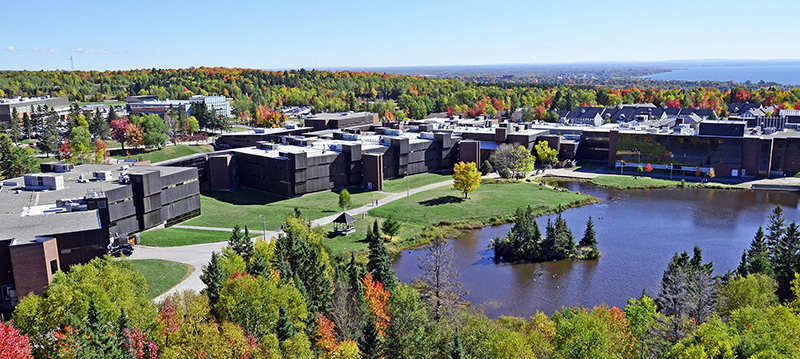
![]() North Bay, Ontario
North Bay, Ontario
North Bay, Ontario’s Canadore College prides itself on giving students the best possible environment for learning, and an experience like no other. Canadore lives this brand promise and through its team of award winning faculty, strong and innovative community partnerships and a principle based approach to relationship building, the college is delivering a unique product. The institution’s 2017 Skilled Solution Strategic Plan states that Canadore’s services and student activities are specially designed to create a unique College experience that allows students to learn grow both personally and professionally. This goal is supported by the creation of individualized learning plans for target groups, a heavy focus on experiential learning and through international exchanges which create well rounded graduates.
Canadore is a leader in Indigenous Education and delivers more than 20 programs across Ontario in the communities we serve. This specialization has taken more than 25 years to build but is rooted in the foundation of long-term partnership and reciprocity.The college also engages with industry partners, such as the North Bay & District Chamber of Commerce, to help students gain skills, advise on course curriculum, provide field placements, and create job opportunities for graduates. Canadore College was founded in 1967, and has an enrolment of 3700 students per year. It also has over 60 full-time programs, and a satellite campus in Parry Sound. North Bay has countless opportunities for development and is home to the Canadore Innovation Centre for Advanced Manufacturing and Production.
Learn more about Canadore College at: www.canadorecollege.ca
Le Cordon Bleu, Ottawa

![]() Ottawa, Ontario
Ottawa, Ontario
Le Cordon Bleu is a world renowned network of educational institutions dedicated to providing the highest level of culinary and hospitality instruction through world class programmes.
Through our international faculty of Le Cordon Bleu Master Chefs and industry professionals, Le Cordon Bleu applies its distinctive teaching methodology where students gain experience through hands-on learning.
Le Cordon Bleu is considered to be the guardian of French culinary technique through its culinary programmes that continue to preserve and pass on the mastery and appreciation of the culinary arts that have been the cornerstone of French gastronomy for over 500 years.
Learn more about Le Cordon Bleu at: www.cordonbleu.edu/ottawa/en
Capilano University
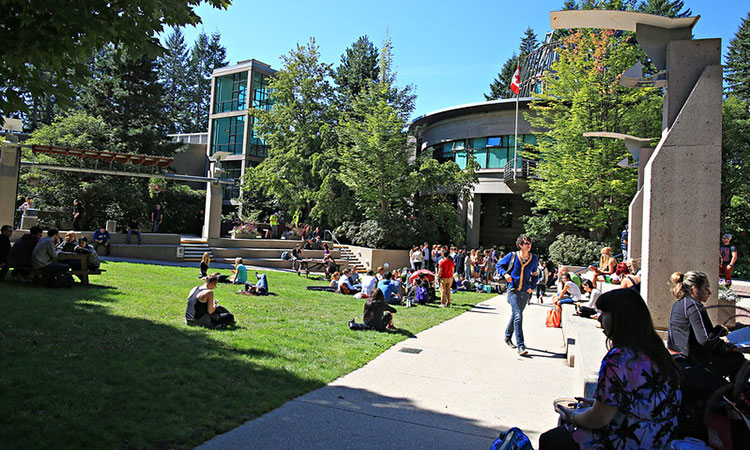
![]() Vancouver, British Columbia
Vancouver, British Columbia
Capilano University is a teaching-focused university based in North Vancouver, with programming serving the Sunshine Coast and the Sea to Sky corridor. The University offers more than 100 programs, including 12 bachelor’s degrees, in areas as diverse as film and animation, early childhood education and tourism management. Capilano University enrols approximately 11,000 students each year, 7,000 in for-credit programs and 4,000 in non-credit courses. Capilano University’s North Vancouver campus is located on the traditional and ancestral territory of the Squamish (Sḵwx̱wú7mesh) and Tsleil-Waututh Nations of the Coast Salish people.
Learn more about Capilano University at: capilanou.ca
Collège Boréal

![]() Sudbury, Ontario
Sudbury, Ontario
Collège Boréal offers quality training and services to a diversified clientele. At the heart of the communities it serves, the College provides leadership to fulfill the potential and ensure the sustainable development of Ontario’s Francophone communities. Prominent and recognized, Collège Boréal enriches communities through the quality of its training and personalized services.
Collège Boréal recognizes the importance of quality and continuous improvement, and strives for excellence in the planning, development, and delivery of its programs and services. Those concepts form an integral part of Boréal’s culture, and are priorities in our strategic commitments, as well as our academic and activity plans. Quality assurance is implicit in our commitment to our students’ satisfaction and success.
Learn more about Collège Boréal at: collegeboreal.ca
College of the North Atlantic
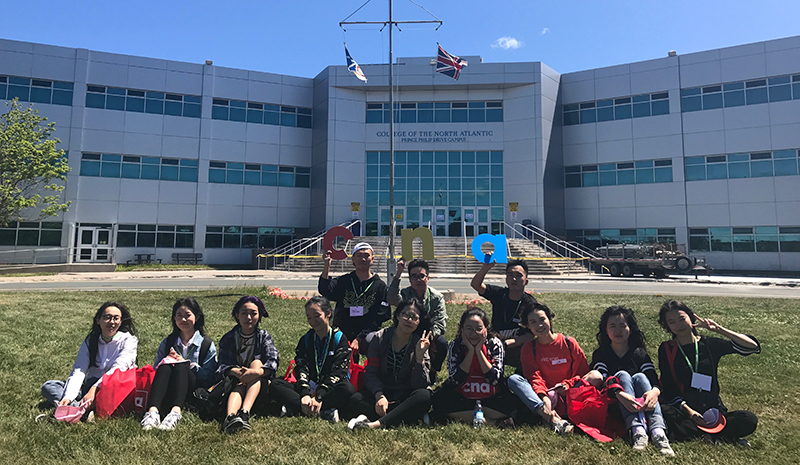
![]() Stephenville, NL
Stephenville, NL
College of the North Atlantic is Newfoundland and Labrador’s public college – one of the largest post-secondary educational and skills training centres in Atlantic Canada, with a history dating back more than 50 years. Today, the institution counts 17 campus locations throughout Newfoundland and Labrador, and has more than a thousand students studying its curriculum at various partner universities in China. CNA also operates a technical education college for the State of Qatar in the Middle East. In Newfoundland and Labrador, the college offers nearly 100 full-time program offerings and more than 300 part-time courses for some 25,000 students each year. CNA continues to have the lowest tuition fees of any post-secondary institution in Atlantic Canada. The institution provides an impressive world-class, nationally accredited range of programming that meets the highest demands of industry; transfer opportunities that promote continuing education at home and abroad; research and development leadership in community and regional innovation; and precedent-setting international partnerships.
Learn more about College of the North Atlantic at: cna.nl.ca
College of The Rockies
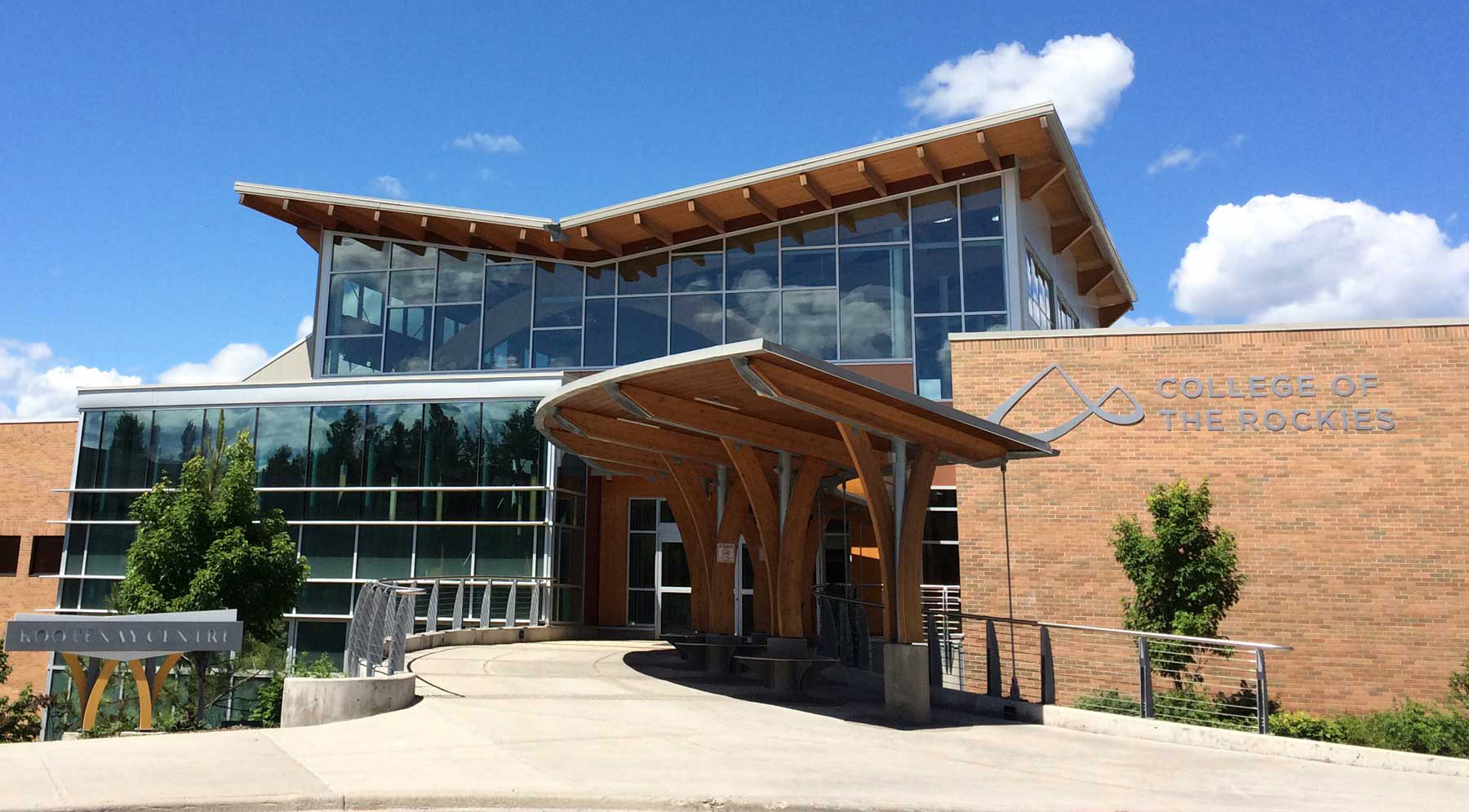
![]() Cranbrook, BC
Cranbrook, BC
Celebrating 40 years of providing post-secondary education in the spectacular Kootenay Rockies of southeastern BC, College of the Rockies combines an exceptional learning experience with an unparalleled lifestyle. With two campuses in Cranbrook and regional campuses in Creston, Fernie, Golden, Invermere and Kimberley, College of the Rockies has a vision to create and deliver the most personal student experience in Canada. Twice voted number one in Canada for overall student experience in the largest annual survey of international students in the world (International Student Barometer), the staff and faculty at the College are passionate in their commitment to take a personal interest in discovering what motivates and excites each student. College of the Rockies offers a wide range of programs across a range of disciplines including arts and sciences, business, tourism, engineering, health, trades, child and youth studies and more. Credentials range from one-year certificates all the way through to four-year Bachelor degrees. Non-competitive entry, a wide variety of online courses and programs, reasonable tuition and affordable living costs are part of what makes College of the Rockies “Rocky Mountain Inspired, Small College Proud”.
Learn more about College of The Rockies at: cotr.bc.ca
Fanshawe College of Applied Arts and Technology
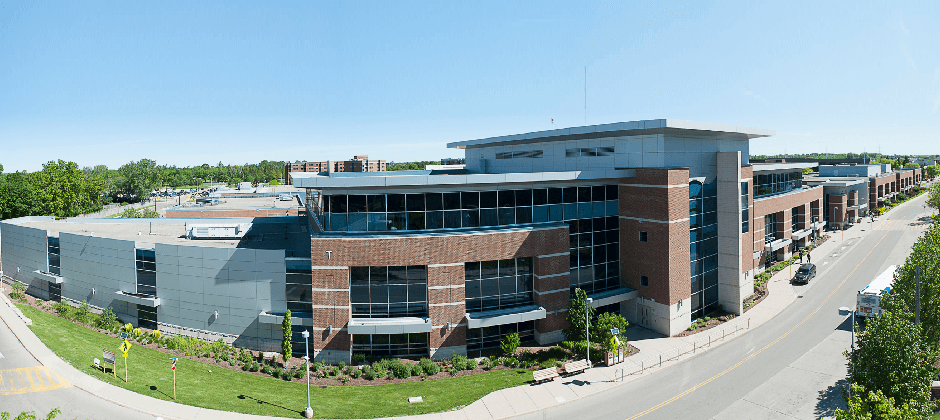
![]() London, ON
London, ON
Fanshawe College is one of the largest colleges in Ontario, with campuses located in London, Simcoe, St. Thomas, and Woodstock. The institution offers more than 200 degree, diploma, certificate, post-graduate certificate and apprenticeship programs. Fanshawe prides itself on its excellent services for students with physical or learning needs, and on its global approach to education – it serves over 2,000 international students from more than 65 countries and has made over 250 articulation agreements with schools around the world.
Fanshawe’s students have access to state-of-the-art tools to help them master their craft, and the institution constantly upgrades its technology and curriculum to ensure students get skills and experience for the job market. Employers often come to Fanshawe’s campus to recruit graduates, and according to recent data, over 87.6% of Fanshawe College grads found employment within 6 months, 4% above the provincial average.
Learn more about Fanshawe College at: fanshawec.ca
Humber College
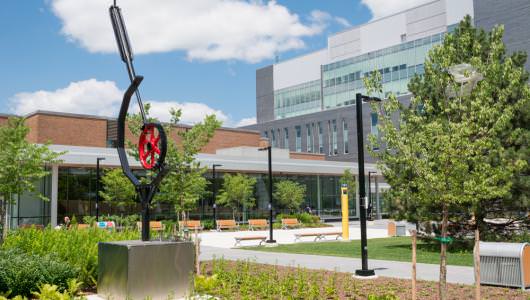
![]() Etobicoke, ON
Etobicoke, ON
Humber College Institute of Technology and Advanced Learning is one of Canada’s leading postsecondary institutions, combining deep theoretical learning with applied, hands-on experience. Humber offers a wide variety of credentials including bachelor’s degrees, diplomas, certificates, Ontario graduate certificates and apprenticeship programs. The college meets its vision of leadership in polytechnic education by providing students clear pathways between credentials and the opportunity to build on previous academic experiences. Humber’s mission is to develop broadly educated, highly skilled and adaptable citizens who are successful in their careers and significantly contribute to their communities.
Learn more about Humber College at: humber.ca
Saskatchewan Polytechnic
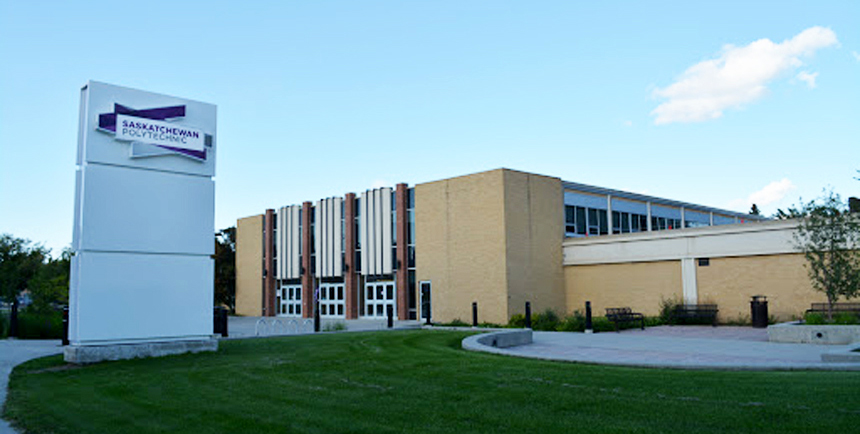
![]() Saskatoon, SK
Saskatoon, SK
Saskatchewan Polytechnic serves students through applied learning opportunities on Treaty 4 and Treaty 6 Territories and the homeland of the Métis people. Learning takes place at campuses in Moose Jaw, Prince Albert, Regina and Saskatoon and through extensive distance education opportunities. Programs serve every economic and public service sector. As a polytechnic, the organization provides the depth of learning appropriate to employer and student need, including certificate, diploma and degree programs, and apprenticeship training. Saskatchewan Polytechnic engages in applied research, drawing on faculty expertise to support innovation by employers, and providing students the opportunity to develop critical thinking skills.
Learn more about Saskatchewan Polytechnic at: saskpolytech.ca
University Canada West

![]() Vancouver, BC
Vancouver, BC
University Canada West (UCW) is a private university in British Columbia, Canada. It was founded in 2005 by David F. Strong, the former president of the University of Victoria. UCW was purchased in 2008 by the Eminata Group and in 2014 sold to Global University Systems, its present owners. Based in downtown Vancouver, the university offers undergraduate and graduate programs in business and management.
Learn more about University Canada West at: ucanwest.ca
Association des collèges et universités de la francophonie canadienne (ACUFC)

![]() Ottawa, ON
Ottawa, ON
L’Association des collèges et universités de la francophonie canadienne (ACUFC) regroupe 22 collèges et universités de la francophonie canadienne situés dans huit provinces du Canada.
Learn more about ACUFC at: acufc.ca